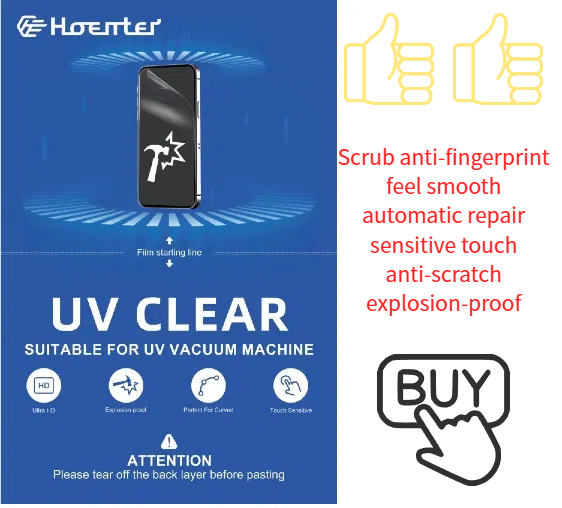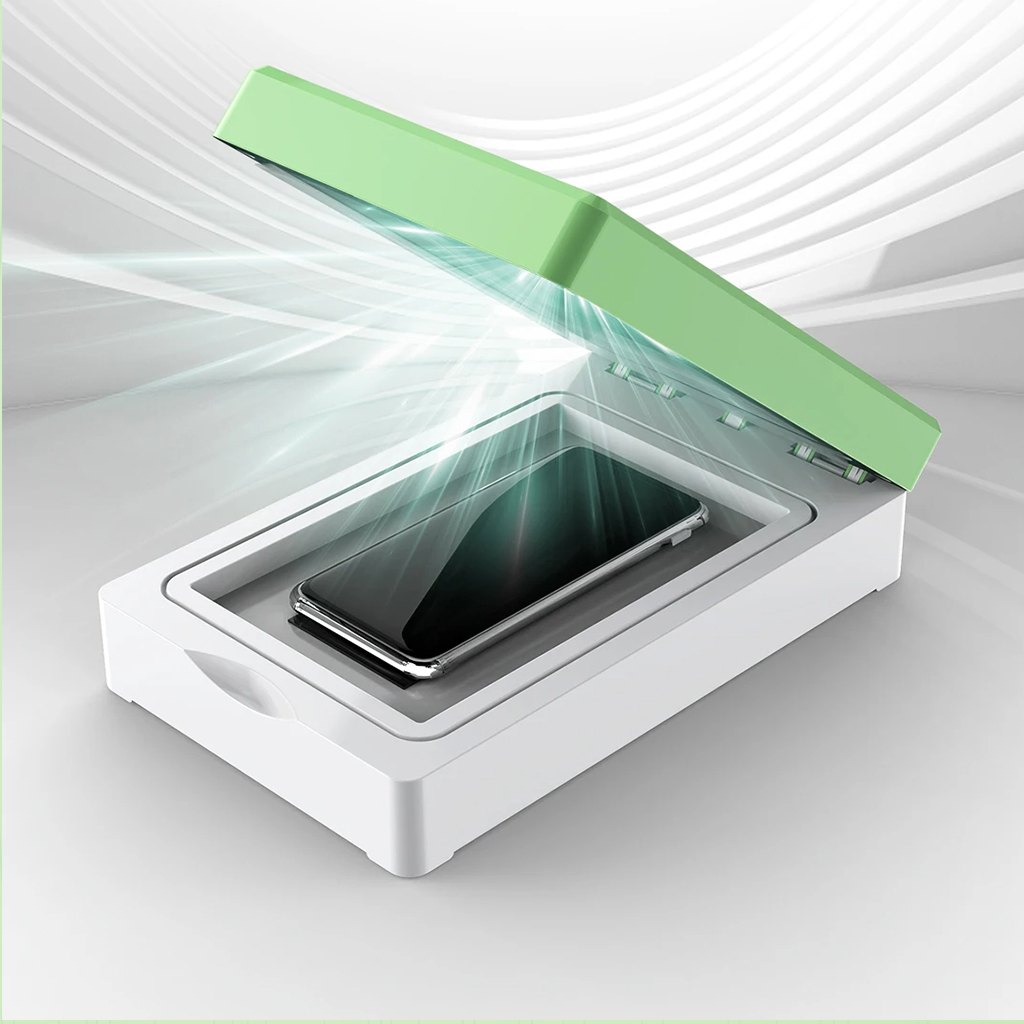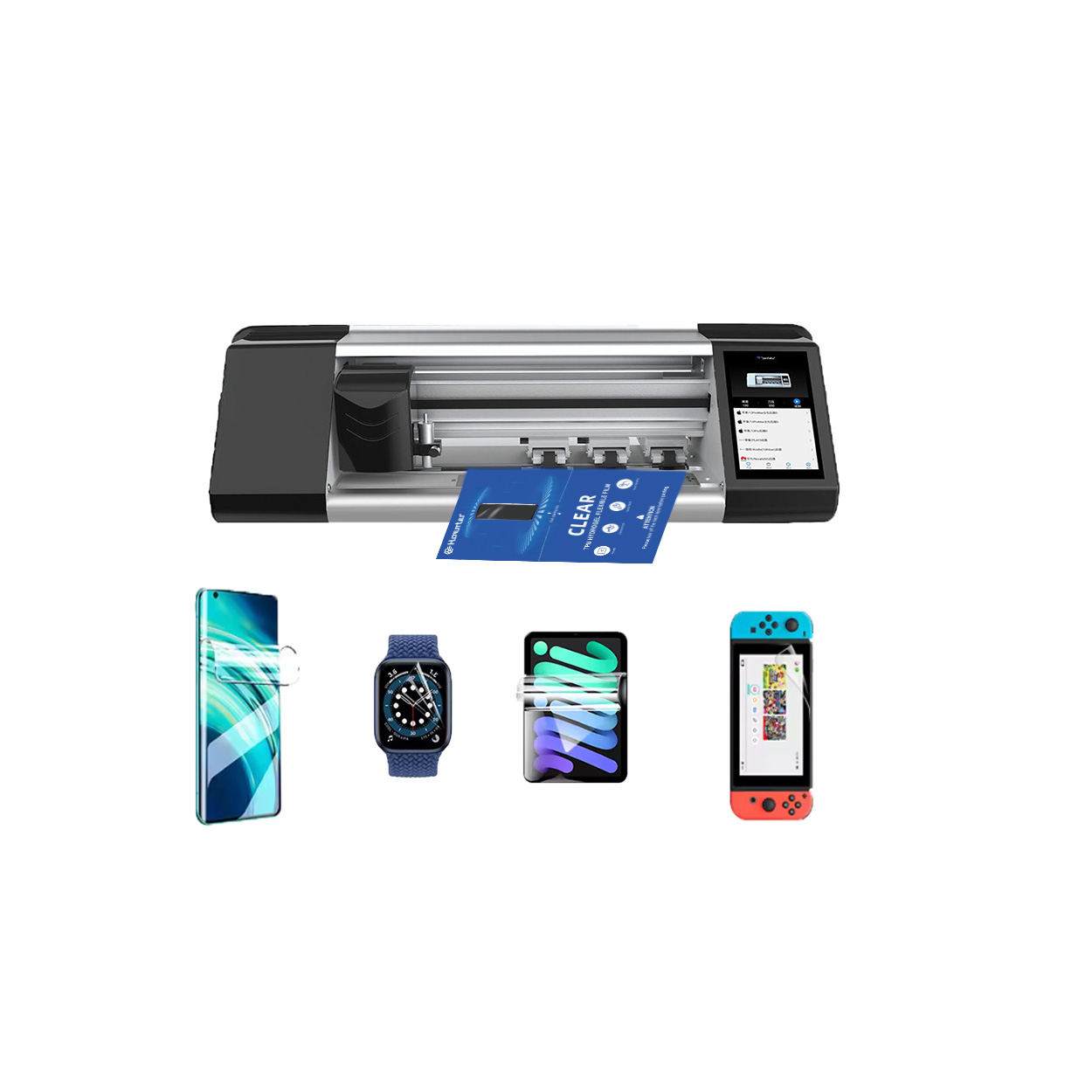The Role of Innovation in Modern Screen Protector Factories
Table of Contents
Extract
Summary
The role of innovation in modern screen protector factories is a pivotal factor shaping the industry’s growth and competitiveness. As technological advancements accelerate, screen protectors have evolved from simple protective films to sophisticated solutions featuring anti-glare, oleophobic, and self-healing properties, catering to the diverse needs of consumers and enhancing the functionality of mobile devices. Notably, the surge in smartphone usage has propelled the demand for high-quality screen protectors, prompting manufacturers to invest in cutting-edge technologies and sustainable practices that align with contemporary consumer values.
Innovation is critical for screen protector manufacturers to stay relevant in a rapidly changing market. Embracing emerging technologies such as artificial intelligence (AI) and the Internet of Things (IoT) allows these companies to streamline production processes and develop new product offerings that meet evolving consumer expectations. Furthermore, a focus on sustainability—through the use of eco-friendly materials and processes—has become essential, as consumers increasingly prioritize environmentally responsible products. However, the path to innovation is not without challenges. Resistance to change, limited resources, and a lack of collaborative culture can hinder progress within organizations. To overcome these barriers, manufacturers must foster an environment that encourages experimentation and the integration of employee feedback into the innovation process. Additionally, the ongoing evolution of consumer preferences and market dynamics necessitates a proactive approach to innovation that anticipates future trends and technological advancements. The future of screen protector manufacturing promises to be characterized by continual innovation, as companies explore advanced materials and multifunctional features that enhance user experience while promoting sustainability. As the market grows and diversifies, the interplay between innovation, consumer demand, and environmental responsibility will play a crucial role in shaping the next generation of screen protection solutions.
Historical Context
The development of screen protectors has undergone significant evolution, driven by advancements in materials and manufacturing processes. In the early 1960s, Corning initiated “Project Muscle,” leading to the creation of Chemcor, a chemically strengthened glass. This project set the foundation for future innovations in glass technology.
However, it was not until the launch of the first iPhone in June 2007 that the importance of protective materials was brought to the forefront, as the device featured a glass screen developed by Corning, later branded as Gorilla Glass in 2008. Initially, screen protectors primarily focused on providing basic protection against scratches and damage. The early offerings consisted mainly of plastic films and simple glass layers, which lacked advanced features. Over the years, as consumer demand for device protection grew, manufacturers began exploring new materials and technologies to enhance the functionality of screen protectors. This shift coincided with the increasing prevalence of smartphones and tablets, leading to a competitive market where durability and usability became key factors for consumers. By the late 2010s, innovations such as privacy filters, glare reduction, and antimicrobial coatings emerged, allowing screen protectors to serve multiple purposes beyond mere physical protection. For example, privacy filters were designed to limit screen visibility from certain angles, thereby safeguarding sensitive information. Additionally, some screen protectors began to incorporate self-healing properties, which allowed minor scratches to disappear over time, further enhancing their value to consumers. As the market continued to evolve, the emphasis on customization and tailored solutions became increasingly prominent. Manufacturers recognized the need to cater to individual user preferences, leading to the development of custom-cut screen protectors made from innovative materials that provide optimal protection while enhancing user experience. The ongoing research into nanotechnology and flexible materials points to a future filled with possibilities for screen protector advancements, positioning them as essential accessories in the modern electronic device landscape.

Current Manufacturing Processes
Overview of Production Line Preparation
Before the actual crafting of screen protectors begins, manufacturers must meticulously prepare the production line, which serves as the backbone of every screen protector manufacturing facility. This critical phase involves careful consideration of materials and the acquisition of advanced equipment to ensure a seamless and efficient production process
.
Application of Protective Coatings
Anti-Glare Coatings
To enhance visual clarity and combat glare, manufacturers apply anti-glare coatings. These coatings significantly reduce reflections and minimize fingerprint smudges, providing users with a more comfortable viewing experience, particularly in bright environments. By improving screen visibility, anti-glare coatings play a vital role in reducing eye strain, especially in outdoor or well-lit settings
.
Oleophobic Coatings
Another essential layer often applied is the oleophobic coating. This hydrophobic layer repels oils and fingerprints, helping to keep the screen clean and smudge-free. It enables easy cleaning and reduces the need for constant wiping, ensuring that the display remains clear and crisp at all times
.
Quality Control Measures
During the manufacturing process, strict quality control is imperative to ensure uniformity and consistency in the application of these protective layers. Precise application and curing processes are essential to achieve the desired functionality and longevity of the screen protectors
.
Embracing Sustainability
In addition to functionality, modern screen protector manufacturing increasingly focuses on environmental responsibility. Forward-thinking manufacturers are actively adopting sustainable practices and recyclable materials to minimize their ecological impact, reflecting a broader commitment to sustainability within the industry
.
Role of Innovation
Innovation plays a crucial role in the modern screen protector industry, driving growth and improving product offerings. By embracing both technological advancements and innovative practices, manufacturers can stay competitive and meet the evolving demands of consumers.
The Importance of Innovation
Innovation is essential for the success of any organization, including those in the screen protector market. It enables businesses to adapt to changing market conditions, enhance performance, and outpace competitors
. As noted by McKenzie Miller, Director of Innovation at Vation Ventures, the goal of innovation should be to maximize potential growth through new ideas rather than merely optimizing existing solutions. This strategic approach is particularly relevant in an industry characterized by rapid technological developments.
Leveraging Technology for Innovation
The integration of emerging technologies such as artificial intelligence (AI), machine learning (ML), and the Internet of Things (IoT) has become a driving force behind innovation in screen protector manufacturing. These technologies allow for the creation of new products, enhancement of existing ones, and optimization of manufacturing processes
. However, it is essential for organizations to remember that technology should serve as an enabler of innovation, with customer needs and pain points at the forefront of any new initiative. By staying informed about the latest technological trends, manufacturers can effectively apply them to their operations and product offerings.
Overcoming Challenges to Foster Innovation
Despite the importance of innovation, businesses often face barriers that can hinder progress. These challenges may include resistance to change, lack of resources, or insufficient collaboration among team members
. To cultivate a culture of innovation, it is vital to involve employees in the process by soliciting their feedback and ideas, which fosters a sense of ownership and collaboration. Additionally, sustainable practices are increasingly being integrated into the innovation process. Companies are exploring eco-friendly materials and manufacturing processes that not only meet consumer demands but also minimize environmental impact. Initiatives such as recycling programs and the development of biodegradable coatings demonstrate a commitment to sustainability while driving innovation.
The Future of Innovation in Screen Protection
As the screen protector industry evolves, the future of innovation looks promising. Research and development efforts are focused on creating advanced materials, such as microbial cellulose and self-healing polymers, which enhance device protection while being environmentally friendly
. By continuing to invest in innovative solutions, manufacturers can pave the way for a sustainable future in screen protection, ensuring that technology and environmental responsibility go hand in hand.

Market Trends
Overview of Market Dynamics
The market for screen protectors has experienced significant transformation driven by advancements in technology and changing consumer preferences. A comprehensive analysis of market segmentation reveals that screen protectors are categorized into various types, notably tempered glass, polyethylene terephthalate (PET), and thermoplastic polyurethane (TPU), each catering to diverse applications beyond just smartphones, including tablets and notebooks
.
Growth Factors
Several factors contribute to the robust growth trajectory of the screen protector market. The rapid industrialization in the Asia-Pacific region has established it as a market leader, primarily due to innovative screen protection technologies emerging from this area. Global economic activities, regulatory practices, and geopolitical events also play a crucial role in shaping market dynamics
.
Consumer Preferences and Sustainability
Modern consumers are increasingly seeking eco-friendly options in screen protection products. This trend is evidenced by a rise in demand for biodegradable materials and recyclable packaging, which align with the growing focus on environmental sustainability. Leading brands are responding by introducing products that not only provide high-quality protection but also minimize environmental impact
.
Competitive Landscape
The competitive landscape of the screen protector market is characterized by a diverse range of companies, including prominent players like Zagg Inc., Belkin International, and Corning. These companies are continually adapting their strategies to address market demands, which include improved durability and aesthetic appeal of screen protectors. Analysis of their production capacities and market strategies highlights the ongoing evolution within the sector
.
Future Projections
Looking forward, the screen protector market is poised for continued expansion, with projections indicating significant growth in market size and volume from 2024 to 2034. This growth is expected to be fueled by ongoing technological advancements and an increasing focus on compatibility with modern digital devices
. The trends observed indicate a promising outlook for innovation in screen protector manufacturing, driven by consumer needs and sustainability efforts.
Case Studies
Zagg Inc. Innovations
Zagg Inc. has been a prominent player in the screen protector market, known for its innovative products that incorporate cutting-edge technology. One notable case study is the development of their InvisibleShield line, which features self-healing technology that allows minor scratches to disappear over time. This technology not only enhances the durability of the screen protector but also provides consumers with a seamless user experience, aligning with contemporary demands for longevity and aesthetic appeal in mobile accessories
.
Belkin International’s Custom Solutions
Belkin International has focused on creating custom solutions tailored to specific smartphone models. Their collaboration with major smartphone manufacturers ensures that their screen protectors are designed to fit the latest devices perfectly, thereby improving usability and protecting the device’s functionality. By investing in research and development, Belkin has introduced advanced features such as blue light filtering and privacy screens, catering to evolving consumer preferences
.
Corning’s Glass Technology
Corning has significantly impacted the screen protector market through its Gorilla Glass technology, which is renowned for its strength and resistance to scratches. By utilizing advanced material science, Corning has pioneered the use of chemically strengthened glass, providing high durability while maintaining clarity. This innovation not only protects devices but also enhances their overall design, reflecting the trend towards slimmer and more elegant smartphones
.
Sustainability Initiatives
Sustainability has emerged as a critical focus within the industry. Manufacturers are now adopting eco-friendly materials and production processes. A case study exemplifying this trend is a recent initiative by several manufacturers to use recyclable materials in their screen protector products. This approach addresses consumer demands for environmentally responsible solutions while also contributing to the reduction of electronic waste, demonstrating a dual commitment to innovation and sustainability
.
E-commerce Collaborations
The rise of e-commerce platforms has prompted screen protector brands to collaborate closely with these giants to expand their reach. For example, exclusive partnerships with online retailers have allowed brands to launch promotional campaigns that significantly increase visibility and customer engagement. These collaborations facilitate the introduction of innovative products to a broader audience, showcasing how e-commerce plays a vital role in the modern landscape of screen protector marketing and distribution
. Each of these case studies illustrates the dynamic interplay of innovation, market demands, and strategic partnerships that define the modern screen protector industry, ultimately guiding stakeholders towards long-term success and growth.

Challenges and Opportunities
Innovation plays a critical role in the success of modern screen protector factories, but navigating the complexities of innovation presents both challenges and opportunities for growth.
Challenges of Innovation
One of the primary barriers to innovation in the manufacturing sector, including screen protector production, is the resistance to change within organizations. This resistance can stem from a lack of understanding of emerging technologies and the potential benefits they offer, leading to missed opportunities for advancement
. Additionally, many organizations face challenges related to resource allocation, as investing in innovation often competes with other operational priorities. Moreover, fostering a culture of innovation is essential yet challenging. Organizations must promote a growth mindset among employees, encouraging them to view failures as learning opportunities. This mindset can significantly influence innovation output; however, it requires intentional efforts, such as training sessions, workshops, and mentorship programs, to embed this culture within the team. As Ron Hyland, VP of Innovation at Vation Ventures, states, “One of the best ways to learn is by failing. Fail fast, reflect, and move on”.
Opportunities for Innovation
Despite these challenges, there are numerous opportunities for screen protector factories to enhance their innovation strategies. Leveraging emerging technologies such as artificial intelligence (AI), machine learning (ML), and the Internet of Things (IoT) can lead to the development of new products and the optimization of existing processes
. By placing the customer at the center of innovation initiatives, manufacturers can better understand and address consumer needs, paving the way for novel solutions that improve overall performance. Establishing clear goals and objectives aligned with the organization’s mission is crucial for driving innovation efforts. Effective communication of these goals ensures that all stakeholders are unified in their objectives, thereby enhancing collaboration and efficiency. Furthermore, the integration of global and national value chains (GVCs and NVCs) offers a framework for evaluating innovation performance, particularly in the context of regional differences in manufacturing capabilities. This approach allows organizations to cultivate their innovation capacity, especially in coastal regions where manufacturing is more advanced.
Comments
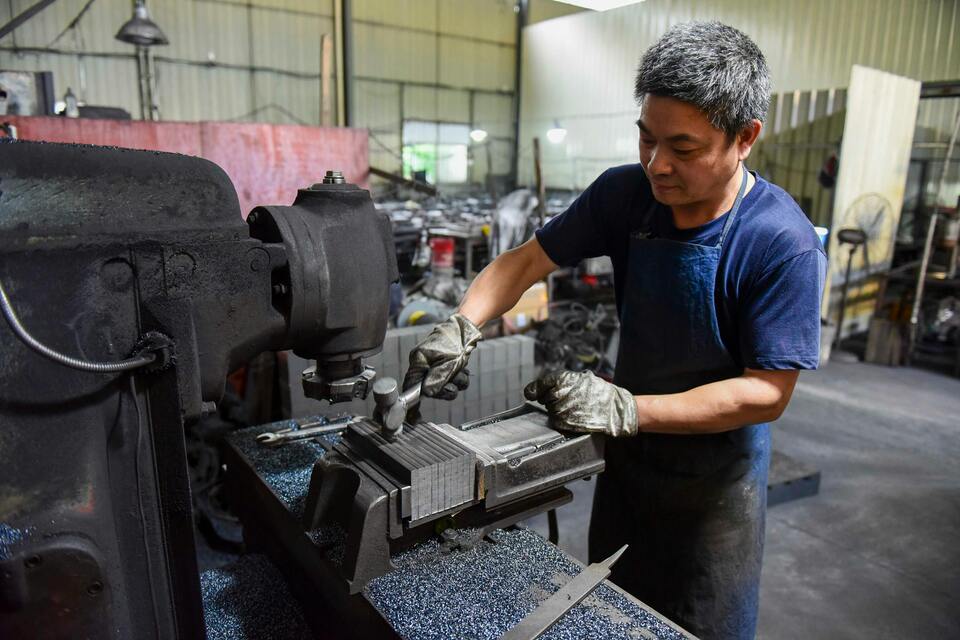
What Is a Hydrogel Cell Phone Screen Protector?
By understanding the differences between hydrogel and tempered glass screen protectors, you can make an informed decision that best suits your mobile phone protection needs.

Ceramic vs. Hydrogel Screen Protector
Both ceramic and hydrogel screen protectors have their unique advantages.
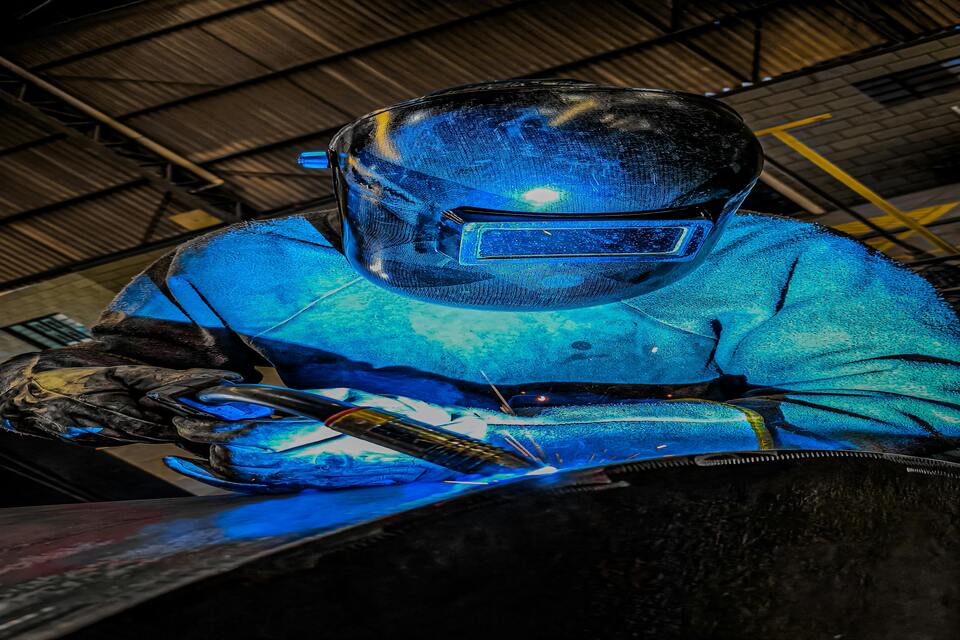
How to Repair Water Damaged Phone
Remember, while these steps can help save your water-damaged phone, prevention is always better than cure.
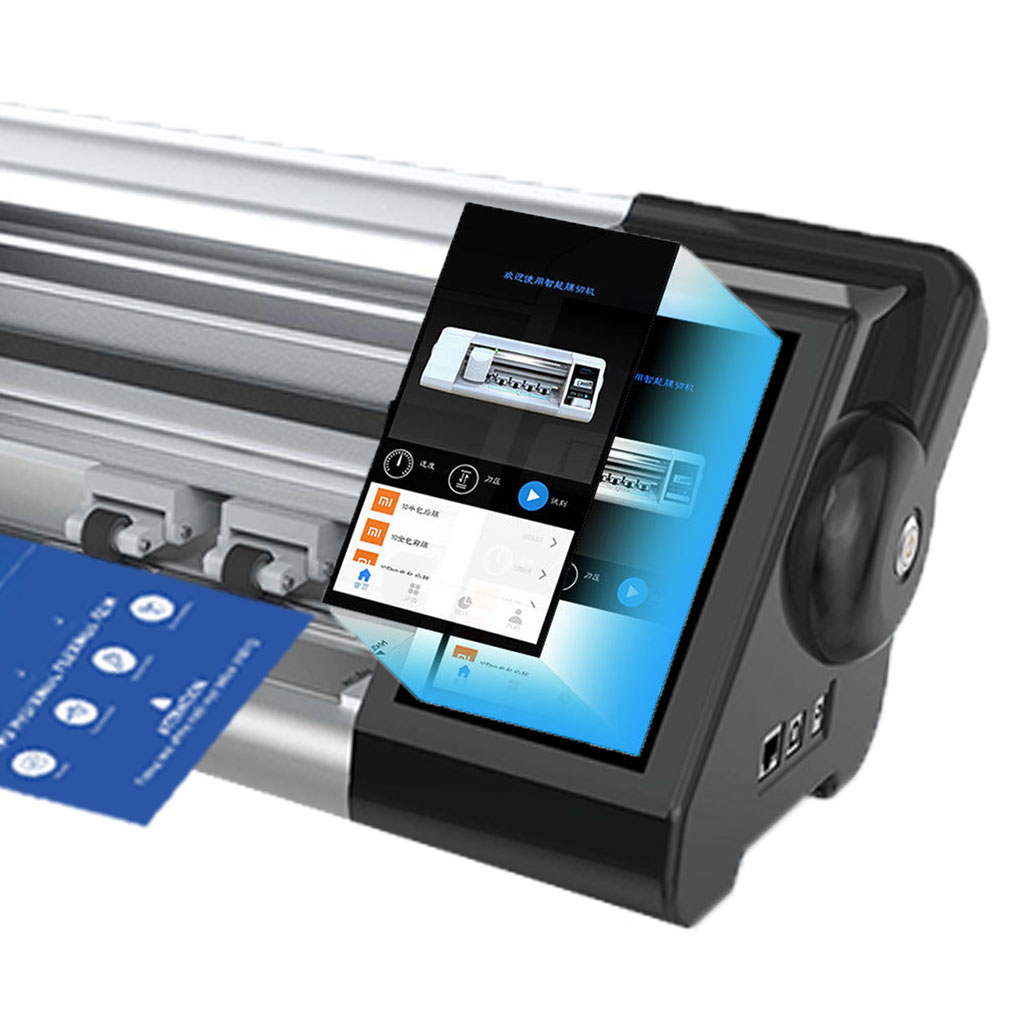
Screen Guard Machine
Screen guard machine offers precision cutting for customizable screen protectors, featuring an extensive template library for retail and wholesale needs.
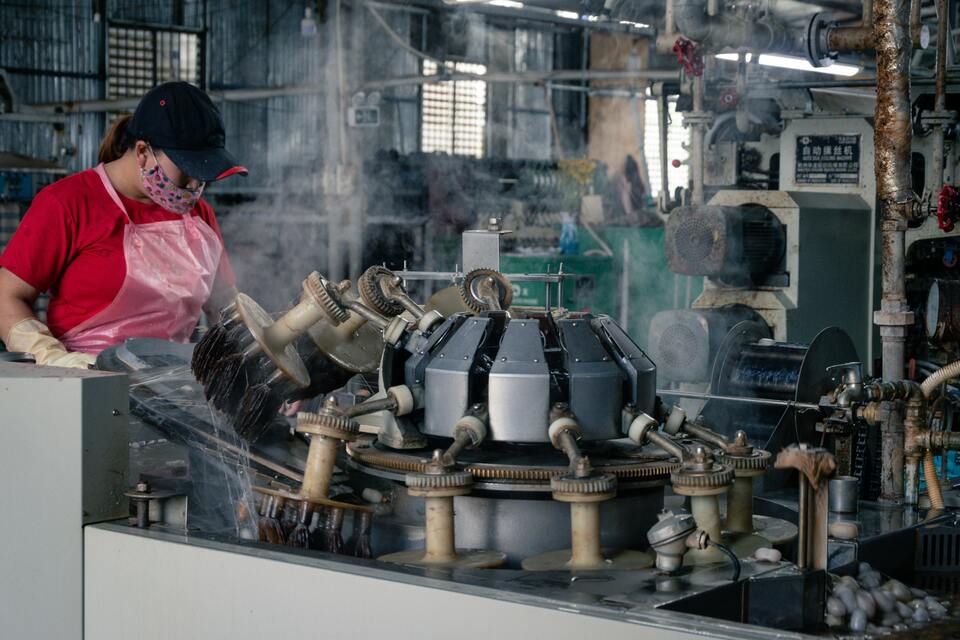
Soft Hydrogel Screen Protector
Hydrogel screen protectors are a modern solution for those seeking reliable and affordable screen protection.
Tags
Find All knowledge and trends from our blog, get the wholesale price and best quality from our factory.
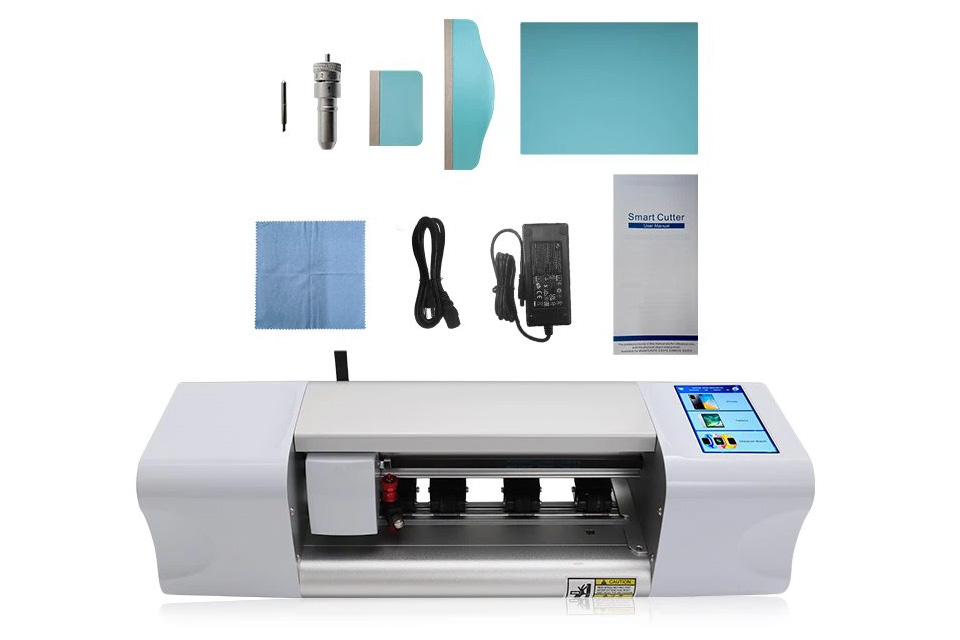
What Film Cutting Machine and Its Application
Film cutting machines have played a crucial role in the evolution of filmmaking and various industrial processes by enabling precise cutting and splicing of film materials.
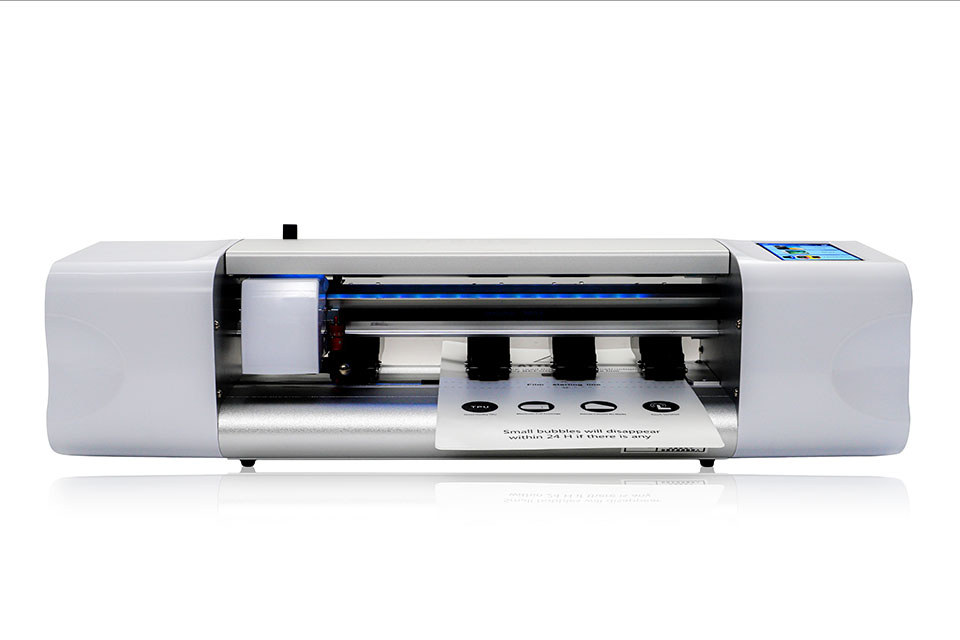
What Is a Screen Protector Cutting Machine?
A screen protector cutting machine is a specialized device designed to produce custom-fit screen protectors for various electronic devices, including smartphones, tablets, smartwatches, laptops, and monitors.
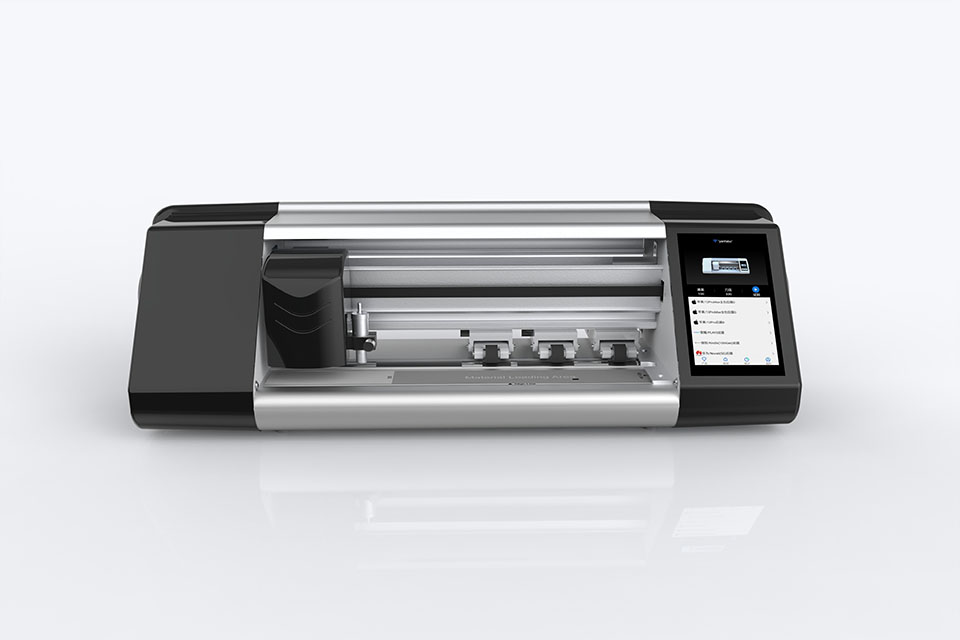
How Mobile Phone Screen Protector Cutting Machine Work?
A mobile phone screen protector cutting machine is a sophisticated device designed
to produce customized screen protectors for various digital devices with high preci
sion and efficiency.
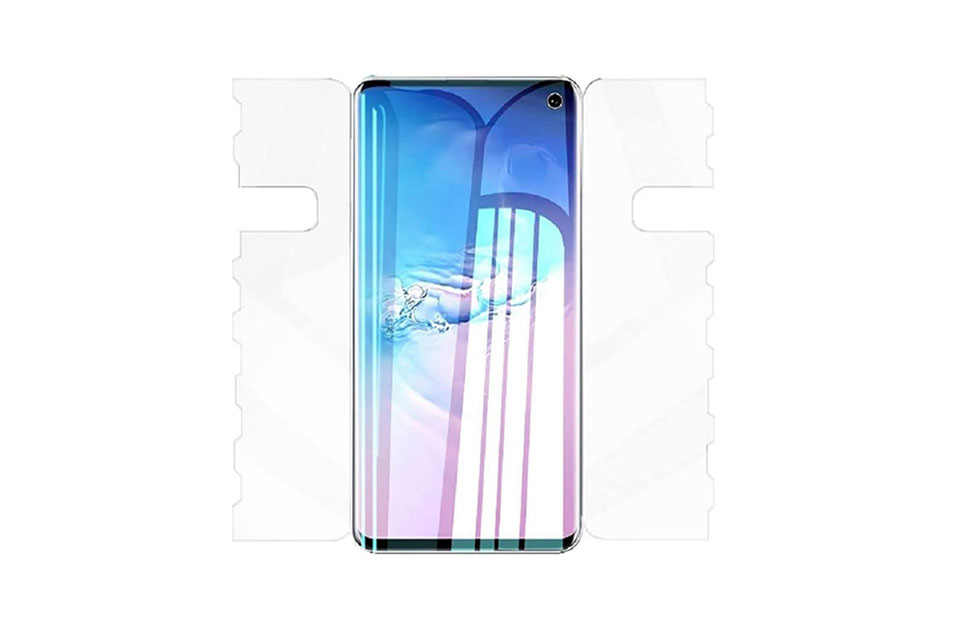
Characteristics of Mobile Phone Tempered Glass and Mobile Phone TPU Screen Protector
Thermoplastic polyurethane (TPU) screen protectors are flexible, durable, and
self-healing plastic films designed to protect electronic device screens from
scratches, impacts, and other potential damages.
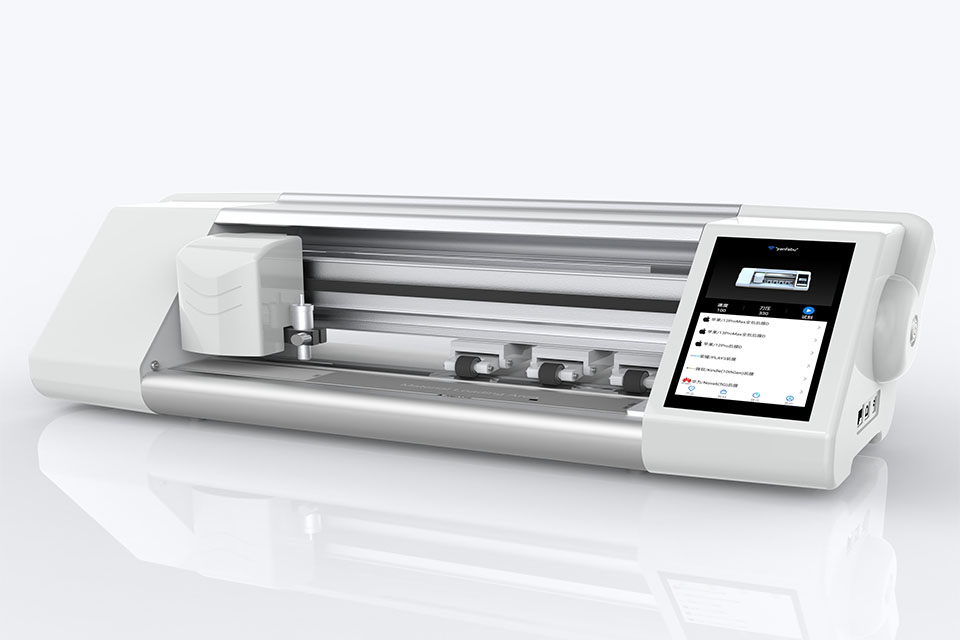
Revolutionize Device Protection with Screen Guard Cutting Machine
Whether you possess a smartphone, tablet, or smartwatch, this versatile machine accommodates a vast array of devices. It seamlessly adapts to the dimensions of your gadget, offering a custom fit that generic protectors can’t match.
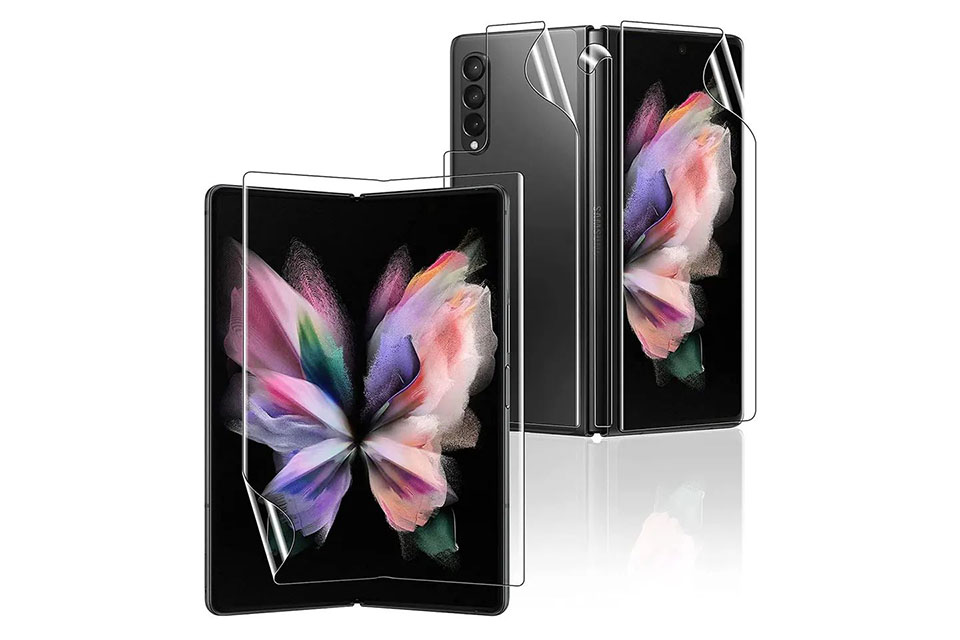
Screen Protector Lifetime Warranty
A screen protector lifetime warranty is a guarantee provided by manufacturers that
promises to repair or replace a screen protector for the lifetime of the product, under specific terms and conditions.

